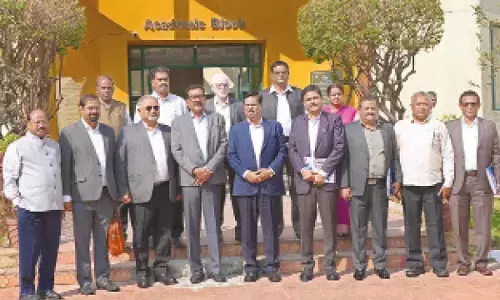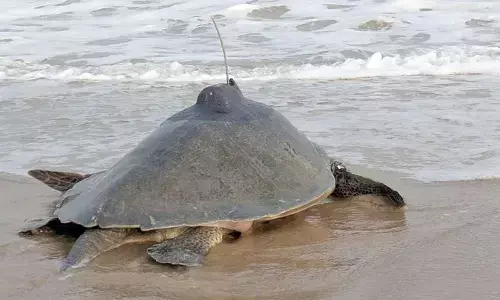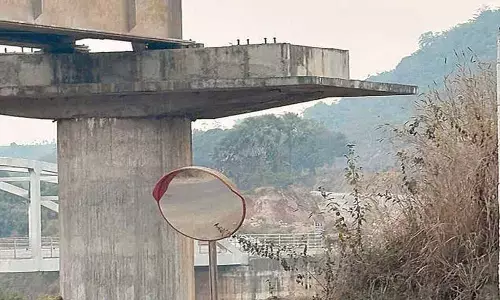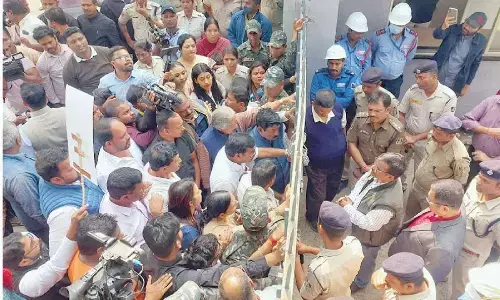Not yet a solution
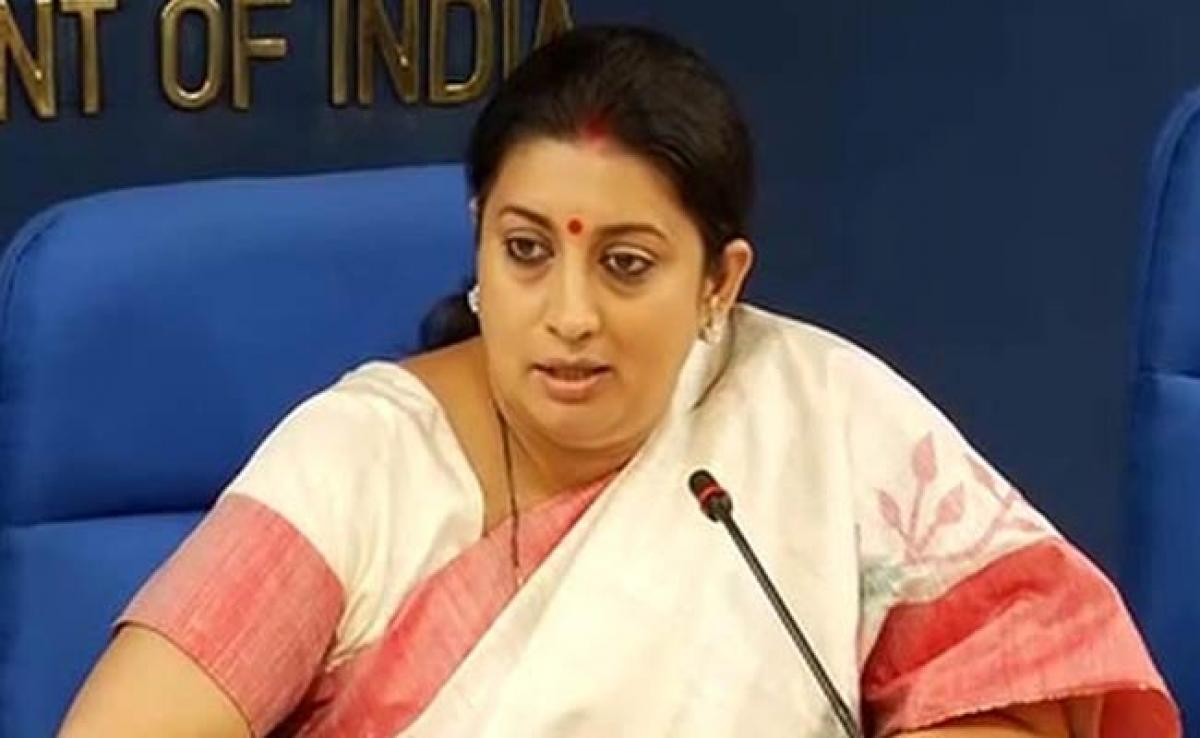
The Central Advisory Board of Education (CABE) has proposed scrapping of the no detention policy in schools and sought the opinion of States. It intends to amend the Right to Education
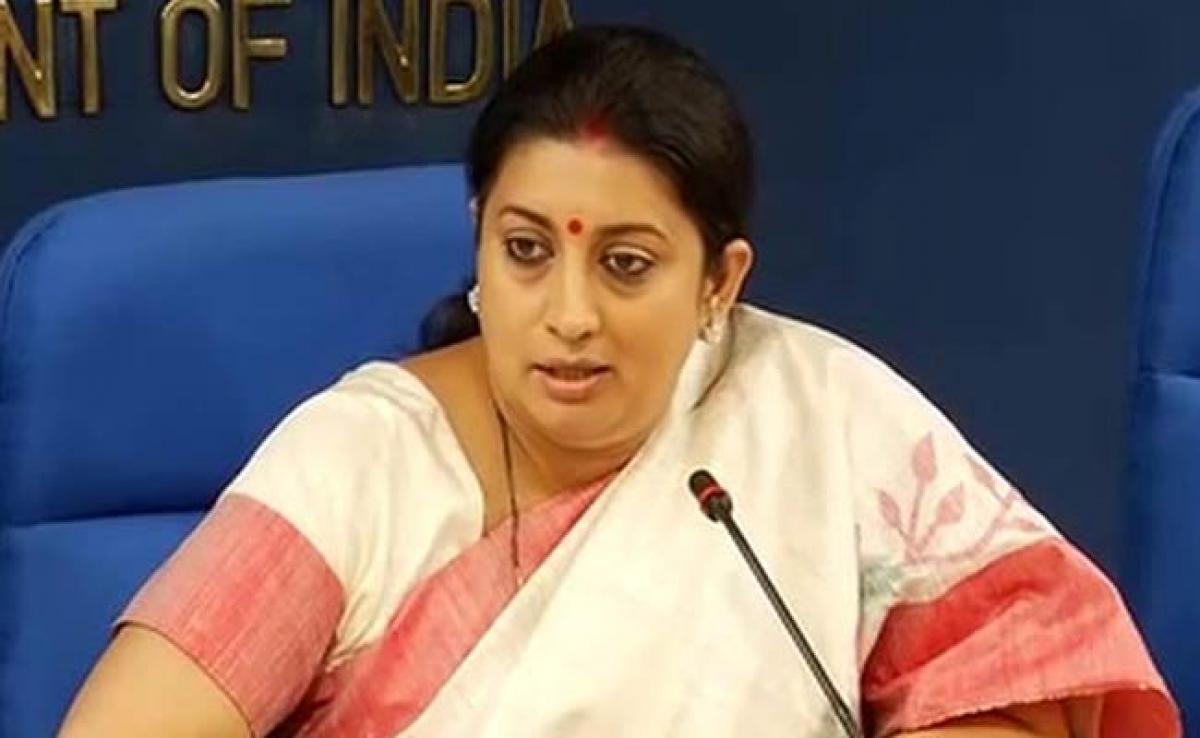 The Central Advisory Board of Education (CABE) has proposed scrapping of the no detention policy in schools and sought the opinion of States. It intends to amend the Right to Education (RTE) Act to reintroduce detention system in schools. The CABE report states that decline in learning is aggravated by the no detention policy.
The Central Advisory Board of Education (CABE) has proposed scrapping of the no detention policy in schools and sought the opinion of States. It intends to amend the Right to Education (RTE) Act to reintroduce detention system in schools. The CABE report states that decline in learning is aggravated by the no detention policy.
It is critical to measure learning outcomes to improve the quality of education. But, any assessment in the absence of detention is not taken seriously by students, teachers and parents. Absence of detention system is reducing accountability and making it difficult to set goals in terms of changing the outcomes, it opined.
The advocates of detention policy argue that such a policy takes away the pressure of academic performance in the minds of both the teacher and the student. It exacerbates motivation challenge of students and teachers. In contrast, the no detention policy adversely affects drive to perform or excel.
But, the no detention policy was introduced by the RTE Act with laudable objectives. The objective is to give every child an opportunity to complete school education by preventing dropouts. The policy was also aimed at making learning joyful and removing the fear of failure.
A proper understanding of the situation facing majority students especially studying in government schools is needed to take a right view on the detention system. Most of these children come from households with little or no support in terms of time, facilities to study, parental guidance.
Most of them are also first generation learners – with no legacy of learning and complete absence of learning eco system at home. Even their regular attendance is hampered by socio-economic factors on which the child has no control. The parents of these children totally lack the capacity to assess the performance of their children and guide them to overcome hurdles.
Should such children be punished for not performing? Detention in such cases would only mean condemning these helpless children to a life of child labour. It is wrong to expose them to challenges of failure at such a tender age without altering the social and economic milieu they come from. The failure of a child is not due to his or her lack of motivation alone.
The children may suffer from many learning disabilities. The solution is not to send them out of school but introduce a system of special teaching for late achievers. The short comings of current pedagogical practices, content of teacher education, teacher skill-set, teacher pupil ratios, teacher learning materials and poor infrastructure etc., also significantly determine the performance of the child. These challenges have to be addressed first before introducing the detention system.
It is certainly important to catalyse a performance-driven culture and foster excellence . The knowledge economy makes it a much more imperative. But address the challenges of current education system like insufficient capacity at every level, disengaged stakeholders etc., before thinking of making the children accountable and subjecting them to punishment like detention.
Woman injured in stabbing attack in Tokyo, suspect at large
Bengal cop booked for murder over mysterious death of woman home guard, SIT to probe case
Staffer recalls horror of 7-kg gold robbery by armed gang in Karnataka’s Hunsur
25-Year-Old Airline Cabin Crew Member Dies At Gurugram Party; Police Begin Investigation














